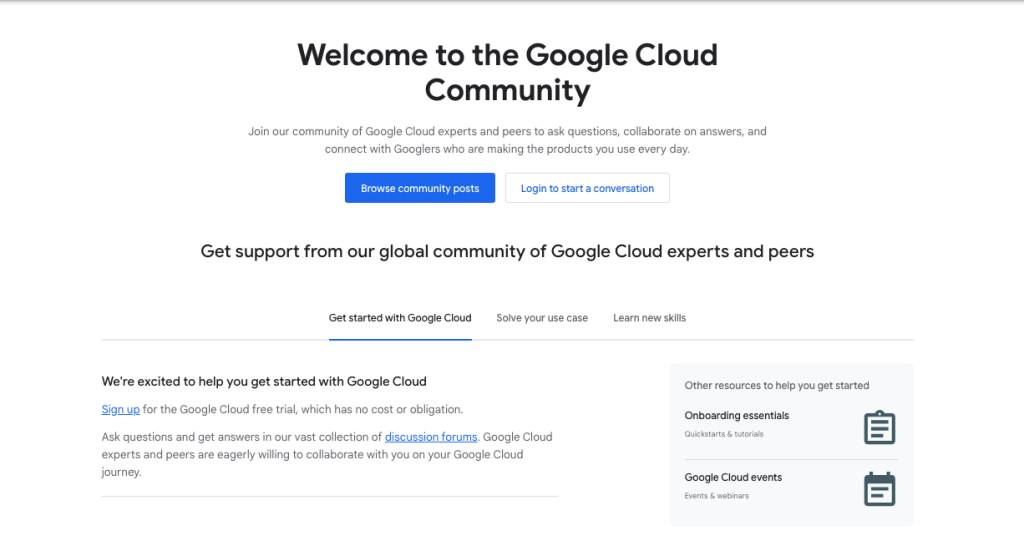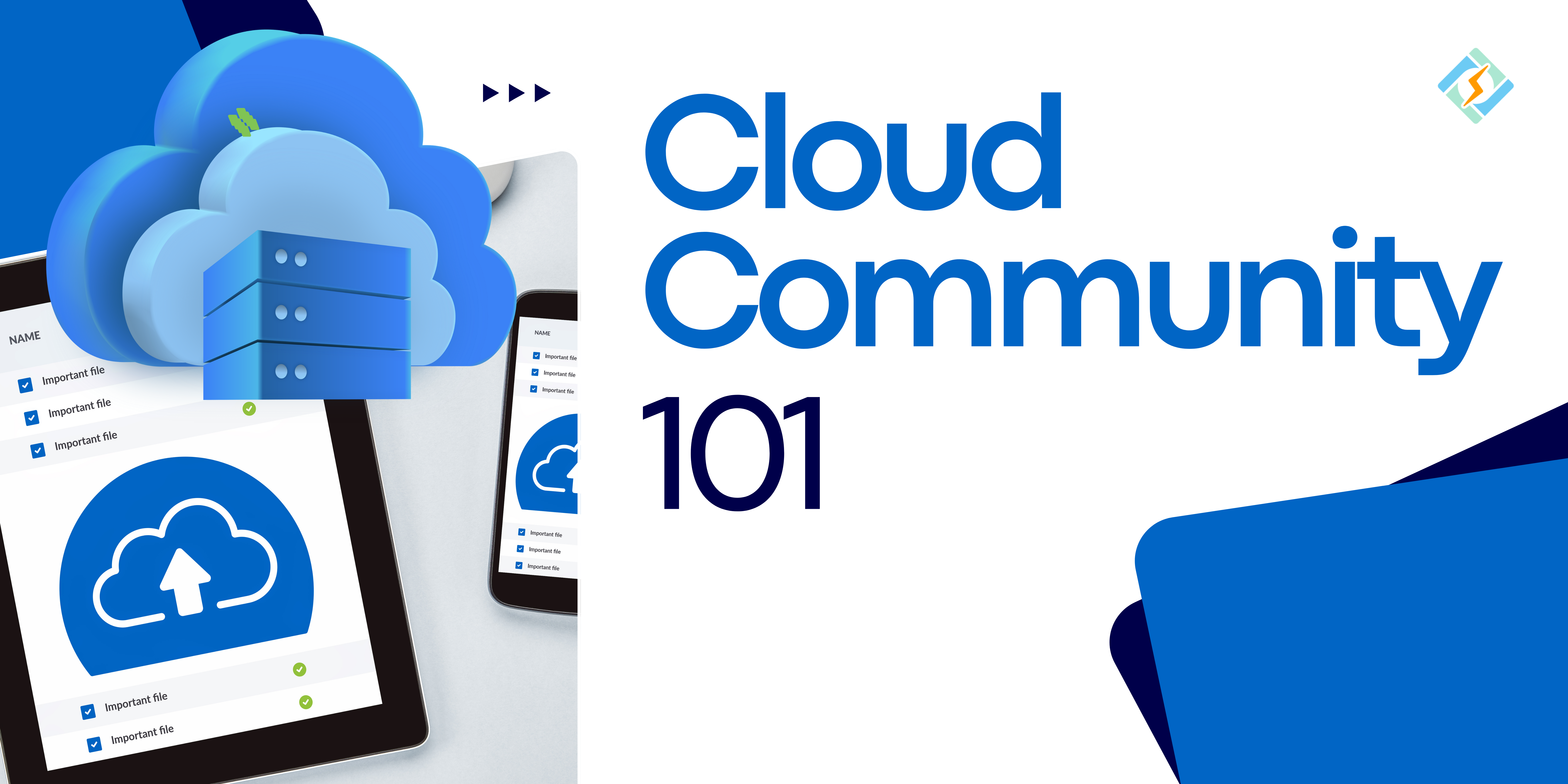Google Community Cloud is a powerful and tailored solution for tech organizations. Think of it as a centralized platform that combines the efficiency and scalability of cloud computing with the cooperation of teams with similar goals.
The Community Cloud Is a considerably new concept, it emerged in 2010. To balance the previous models, the community cloud was created to combine the cost-effective advantages of network sharing with the privacy and exclusivity of private clouds.
But like every other technology, community cloud has its strengths and weaknesses. And this article explores everything in detail for you. ” Where it stands out as a top choice” & “Where it falls short”
What Is a Community Cloud?

A community cloud is a type of cloud setup where a shared infrastructure is made just for a specific group of users from different organizations having similar goals, like security needs or policies. It’s a mix between a private cloud, which gives more privacy and control, and a public cloud, which is more collaborative. Community members, outside providers, or both own, run and maintain a community cloud system.
The main goal of a community cloud is to help various users work together on projects and applications that are important to their community. This setup usually has a central cloud infrastructure that meets the specific needs and security standards of a specific industry. It provides a shared environment that brings together different cloud services to tackle challenges unique to that sector.
On a technical level, a community cloud is built to make it easier for members to share data, develop projects together, and support each other. It can be hosted in a data center owned by one of the organizations or by a third-party cloud provider and can be located either on-site or off-site.
Get exclusive access to all things tech-savvy, and be the first to receive
the latest updates directly in your inbox.
Management can be done by the organizations themselves or by a cloud provider. The infrastructure is set up to meet the shared needs of the community, often including custom security measures, compliance processes, and governance rules.
3 Types of Community Cloud
Community clouds are classified according to ownership, management, and the type of shared resources. Take a look at the 3 main types below:
- Ownership-Based: This category includes on-premise community clouds, which are owned by participating organizations, and third-party community clouds, which are operated by an external provider.
- Management-Based: This consists of internally managed community clouds, which are collectively overseen by the organizations involved, and provider-managed community clouds, which are managed by a cloud service provider.
- Nature of Shared Resources: This features vertical community clouds, which focus on industry-specific sharing( within the same industry), and horizontal community clouds, which boost cross-industry sharing of common functionalities.
Key Features of Community Cloud
- Security
- Scalability
- Customization
- Access Control
- On-demand self-service
- Community Management
A shared infrastructure: where different services come from similar or different clouds but all belong to the same group.
Why Community Cloud Is Great: Top Benefits Explained
There are no IT department overheads.
The community cloud lowers IT department overhead by integrating data, apps, and everything else into a single cloud environment. Because it’s so simple to use, tenants don’t need to hire extra staff to handle the system.
Convenience and Control
In a shared cloud, there are no conflicts over control or convenience. A main feature of the community cloud is that all tenants have a voice. They share ownership of the infrastructure and make decisions together. This setup helps companies avoid the issues of a private cloud while allowing them to store their data locally.
Cost-effectiveness
Community cloud setup is less expensive than private cloud setup. Users can connect to the same environment with logically separated sessions in a community cloud. This eliminates the need for distinct servers to meet the same needs across organisations.
You can also explore modern Cloud Cost Management Tools that help organizations monitor and optimize their cloud spending while maintaining efficiency across shared environments.
Regulatory compliance
Privacy laws are constantly changing and can differ widely across the globe, nationally, and regionally. Take California, for example, which has rolled out the Consumer Privacy Act (CCPA), while other states are starting to follow its lead. By coming together under a cloud community framework, organizations can ensure a unified approach to interpreting and applying these laws, significantly lowering the risk of legal issues.
Industry-specific security requirements
Regulations like HIPAA in healthcare and PCI DSS in the payment sector outline how companies should manage data storage and transfer. Compliance requires specialized knowledge and technology, and community cloud members can support each other by sharing their expertise.
High availability
One of the biggest draws of cloud solutions is their high availability, which means they experience minimal to no downtime. This advantage also applies to community clouds.

More control
Many businesses prefer private clouds over public ones because they want more transparency and control. While public clouds simplify setup, scaling, and maintenance, private options offer that extra layer of oversight.
Scalability
Community clouds can expand with organizations, helping them to satisfy both present and future needs.
Before deciding to invest in private cloud infrastructure, community clouds allow safe distant employee connections, test new rules, and act as a hybrid environment.
Where Community Cloud Falls Short: Limitations to Consider
Though Google Community Cloud offers many great benefits it still has its limitations. Take a look at the following:
1. Security Concerns Challenge
Security is still a major concern for businesses looking into Community Cloud. Risks associated with shared infrastructure include data breaches and illegal access, particularly as different organizations may use different security protocols, which could lead to vulnerabilities.
Solution:
- Standardized Security Protocols: Create a set of agreed-upon security protocols that all participating organizations adhere to. This should encompass strong encryption, stringent access controls, and routine audits.
- Access Management: Deploy comprehensive identity and access management systems to guarantee that only authorized individuals can access sensitive information.
- Regular Security Audits: Schedule frequent security audits and vulnerability assessments to pinpoint risks and address them swiftly.
2. Compliance and Regulatory Issues Challenge
Community Cloud environments frequently cater to sectors like healthcare, finance, and government, which face strict regulatory demands. Navigating the diverse compliance requirements across organizations can be quite challenging.
Solution:
- Unified Compliance Framework: Establish a cohesive compliance framework that meets the regulatory needs of all member organizations. This framework should be updated regularly to keep pace with evolving regulations.
- Third-Party Compliance Tools: Use third-party compliance solutions that automate compliance checks and reporting, ensuring adherence to all regulations consistently.
- Collaborative Compliance Teams: Create collaborative compliance teams with representatives from each organization to manage compliance efforts and promote a culture of shared accountability.
3. Integration Challenges Challenge:
Merging existing systems and applications into a Community Cloud setup can be very challenging, particularly when legacy systems are involved. Compatibility issues may arise, resulting in disruptions and inefficiencies.
Solution:
- Compatibility Solutions: Develop strategies to ensure that legacy systems can integrate smoothly with the Community Cloud environment, minimizing disruptions and enhancing operational efficiency.
Who Should Consider a Community Cloud?
Community Cloud is ideal for organizations that want to collaborate and also want to keep control over their sensitive data. The following organizations benefit from this the most:
1. Healthcare
Offers a safe and compliant platform for the exchange of confidential patient information.
2. Educational Institutions
Provides an affordable and secure solution for handling extensive student data.
3. Financial Institutions
Supports secure partnerships among banks, insurance providers, and financial organizations.
4. Govt Agencies
Promotes teamwork while ensuring protection against security threats and adherence to regulations.
5. Non-Profits or Industry Coalitions
Encourages collaboration without the big expenses associated with private cloud solutions.
Community Cloud vs. Other
Cloud Models: Comparison at A Glance!
| Feature | Community Cloud | Public Cloud | Private Cloud | Hybrid Cloud |
| Ownership | collaborative ownership among organizations with similar needs. | owned by 3rd-party service providers such as AWS or Google Cloud | sole ownership and operation by a single entity | A mix of public and private cloud, owned by the organization & third parties |
| Used By | Industry-specific or goal-oriented groupings | People, companies, & the general public | Single organization or business | A single company or a conglomerate of businesses with various needs |
| Customization | High customization based on group needs | Limited customization for users | Full customization for each company | Both private and public use is possible with moderate customisation. |
| Cost | Shared cost among members | Pay-as-you-go, typically low cost for entry | Heavy initial and ongoing expenses | Variable expenses based on the mix of public and private |
| Security & Privacy | High security with industry-specific compliance (e.g., HIPAA) | Less secure; depends on the provider’s security measures | High security; fully controlled by the organization | Varies based on private/public cloud mix |
| Compliance | Designed to meet specific regulatory requirements. | usually not specific to regulations | Offers complete control over compliance. | Compliance flexibility depends on cloud use. |
Emerging Trends in Community Cloud for 2025
AI-Powered Automation: Cloud solutions are using AI-powered automation to boost productivity, optimize workflows, and improve data management. This includes intelligent data storage optimization and real-time security monitoring.
Zero Trust Architecture: Cloud providers are adopting Zero Trust frameworks, which require ongoing authentication for every user and device, whether they are on the network or accessing it remotely.
Advanced Encryption: The methods of data encryption are evolving, improving protection for data both at rest and in transit. This advancement safeguards sensitive information from unauthorized access, even in a collaborative cloud setting.
Increased use of Hybrid Cloud Models: Many businesses are using hybrid cloud strategies, which combine public, private, and community cloud benefits. This is important for companies that want the flexibility of public clouds while also needing the security and compliance features of community clouds.
The integration of Edge Computing and 5G technology: This trend will transform the Cloud community in 2025. Edge computing processes data close to its source, reducing latency and enhancing real-time decision-making. When combined with Community Cloud and 5G, it enables industries to swiftly analyze large data volumes, leading to quicker, more informed decisions.
Conclusion: Is Community Cloud the Right Choice for You?
A community cloud can be a game-changer for businesses that share similar goals and needs. It can also act as a foundation for innovations within specific industries. This approach brings together collaboration, cost efficiency, and security for organizations with common requirements.
Still, it does have some downsides, like being pricier than public clouds and facing management hurdles, which might not make it the best fit for everyone. We explored all that in detail.
Looking ahead to 2025, the future of Community Cloud is bright, there will be advancements in security, AI automation, and hybrid solutions. Industries will become more secure and customized cloud environments, Community Cloud will enhance collaboration, improve efficiency, and support regulatory compliance.
FAQs
1. Is the community cloud secure?
Absolutely, community clouds are built with advanced security measures that cater specifically to the requirements of the collective group.
2. How does community cloud differ from hybrid cloud?
Community clouds emphasize common objectives and compliance, whereas hybrid clouds integrate both public and private cloud elements for greater adaptability.
3. Are small businesses able to take advantage of a community cloud?
Yes, small businesses in particular sectors can gain advantages if they align with others in the community who have similar objectives or regulatory needs.



